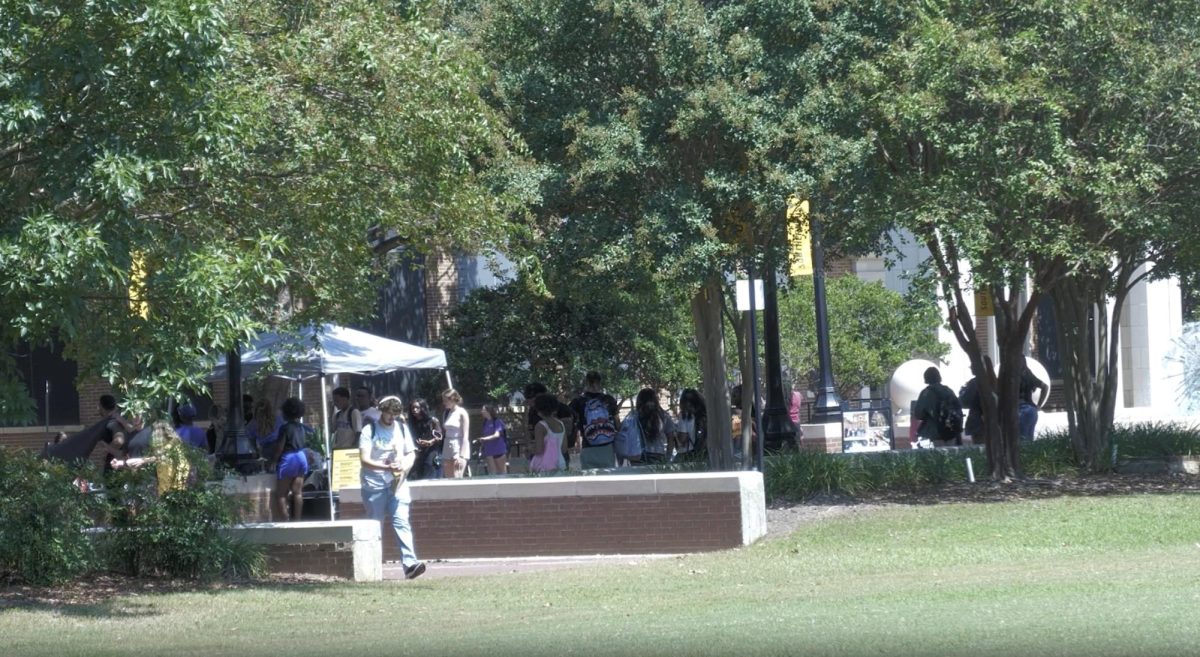The University of Southern Mississippi faces budget cuts following statewide university budget reductions.
According to WJTV, Gov. Phil Bryant’s deduction in the allocations of funds to institutions of higher education has forced many universities to readjust their spending and figure out ways to maintain the operation of their institution.
USM Provost Steven Moser said the decreased state funding combined with a decline in enrollment will result in a $3.5 million dollar decrease from the university’s budget, meaning $2.5 million dollars will be funneled directly from the Office of Academic Affairs.
“We must acknowledge the reality that our fiscal situation reflects the current landscape and changes in higher education in this country,” Moser said.
Vice President of Finance and Administration Douglas Vinzant said the deduction in state allocations comes from the governor’s need to reduce state spending because of lack of anticipated revenue.
The reduction in budget changes the planned budget for the current fiscal year.
“Rather than adopting an ‘OK, we’re going to cut out an activity’ [attitude,] what we’re doing instead is slowing down [and] refilling vacant positions,” Vinzant said.
“So, positions that turn over naturally — a person leaves to take another job or a person retires between now and the end of June 30, which is the end of the fiscal year — we’re just going to have people leave those vacant until July 1.”
This change comes four years after a similar mass budget reduction. Reports from 2010 state that the Institutions of Higher Learning Board of Trustees requested all state universities develop plans based on impending budget losses. In 2012, the university altered its budget within various departments. The anticipated budget loss was $15 million dollars.
With the new budget cut, Southern Miss has lost about $18.5 million in state funding within the last four years.
The 2012 budget cut caused some faculty and staff members to lose their jobs. However, the institution made budget reductions during the 2014- 2015 and 2015-2016 fiscal years that helped cushion the blow of the loss of state appropriation.
“We just went through a budget reduction last year that was not from state appropriations it was having to reduce spending because our enrollment had declined, so the tuition revenue that we were receiving was down,” Vinzant said. “We had to reduce spending but because we went through that education planning a year ago, we had set aside money in a university reserve, and that’s frankly why we can elect to use [this] process.”
Moser said if the university’s departments continue to remain 10 percent under budget, the university will not have to cut down on employee spending.
“As of December, institution- wide spending of current year budgets stood at 45 percent,” Moser said. “If that specific pattern of spending continues through the close of the fiscal year in June, we will recapture about 10 percent of our [education and general] budgets.
By doing so, we should be able to meet the budget shortfall without having to reduce the institution’s workforce.”
Moser said he and Vinzant continue to work to overcome the new changes in the budget and are interested in working to strategize for new innovation and reinvestment.
The Jackson Free Press reported Gov. Bryant and the House of Representatives sent the proposal for budget cuts to universities across the state. These reductions will draw from state universities as well as state student financial aid and state subsidiary programs.
State of Mississippi Institutions of Higher Learning Commissioner Glenn Boyce addressed the IHL’s concerns in a letter to the HOR, which includes the hardships the universities may face as a result of these budget cuts.
“The primary way for universities to achieve the reduction is to freeze vacant positions and to furlough and/ or reduce current personnel including faculty,” Boyce wrote in a letter addressing the issue.
The letter said at least 700 current positions may be affected by furloughs, layoffs or unfilled positions.
“It should be noted that several universities have already eliminated all vacant positions and have already laid off employees because of other financial conditions existing prior to the proposed reductions,” Boyce wrote.
The university officials assert that a permanent 7.8 percent reduction in state funds will make way for the loss of access, quality and potentially accreditation for some universities.
According to Boyce, a decreased budget will result in increased rates for tuition and fees for the 2017 academic year.
Many people fear that the increase in tuition and decrease in state financial aid will result in many Mississippi students not being able to afford a higher education.
This potential struggle remains particularly true for universities that rely on state funding instead of large donations. Online financial reports from the University of Mississippi show the school’s wide budget increased between the previous school year and the current 2015-2016 school year.
In the last few years, The University of Southern Mississippi has undergone changes to adjust to repeated state budget cuts. The university plans to meet financial quotas without having to lose more programs and employees.































